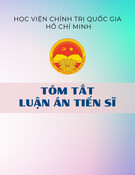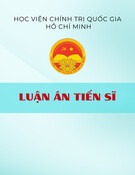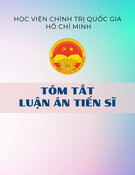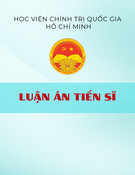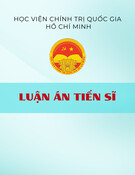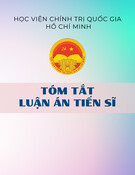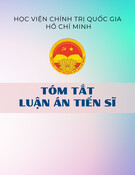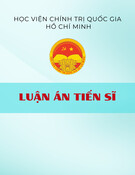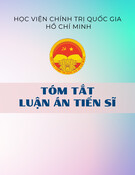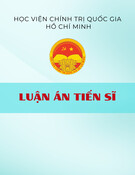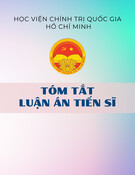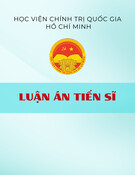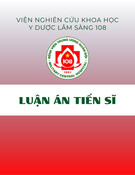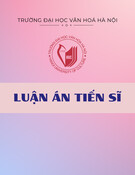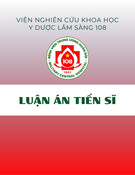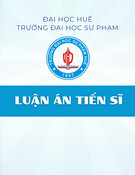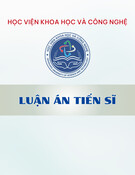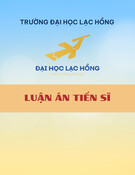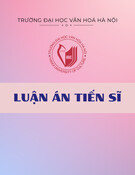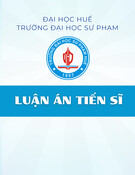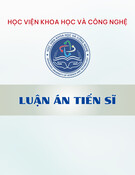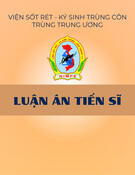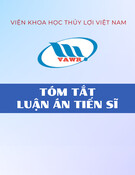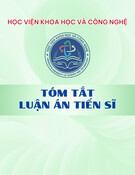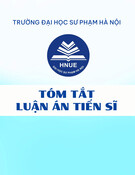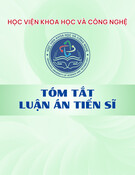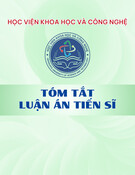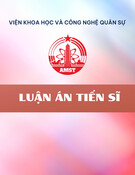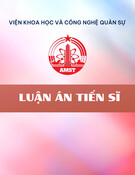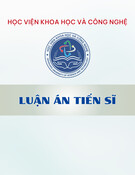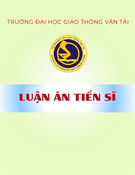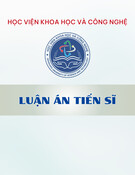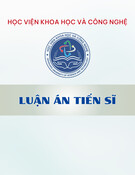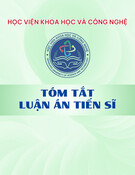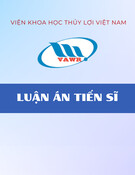
iii
ABSTRACT
The Vietnamese government issued the Resolution No.120/NQ-CP dated on
17/11/2017 to enhance the sustainable development of the Mekong Delta in the context of
changing global climate. With the strategic orientation and comprehensive solutions for
sustainable development of Mekong Delta, the resolution demonstrates that development
respects the nature, in accordance with the in situ socio-economic development and avoiding
abrupt interferences in nature. In addition, the viewpoints are to select different development
adaptive models to natural conditions and friendly to the environment and develop
sustainably with the motto “living with floods, brackish water and saltwater”; making plans
and take measures for response to natural disasters such as storms, floods, droughts and
saltwater intrusion and to the most unfavorable situation due to climate change and
development of Mekong River upstream development (Vietnamese government,
2017).Therefore, the research “Agro-ecological Zoning Based on Dynamic Water Resources
in coastal areas of Vietnamese Mekong Delta”was done to serve the planning of agricultural
production in agro-ecological zones on the basis of efficient use of water resources for
contribution to protecting the ecological environment in order to effectively exploit the
advantages and natural conditions of each region and each locality. The content of this
thesis was implemented in Soc Trang province, but this will be an important database
applied for the management of surface water resources in agro-ecological systems in the
Mekong Delta in general.
The research results based on the framework “Ten-building Block” were carried out
by synthetic research tools. They were: (i) Participatory Rural Appraisal (PRA) tool, Key
Informant Panel (KIP) tool and farm household surveys for collecting information from the
government and local people; and (ii) Geographic Information System (GIS) tools for
presenting the geospatial data. These are effective research tools to meet the needs of the
targets of this thesis. Research showed that three agro-ecological zones of the Soc Trang
province were identified including: (1) fresh water zone, (2) seasonal saline water zone and
(3) permanent saline water zone. In addition, there were 36 sub agro- ecological zones
divided from the three main zones. The agro-ecological zoning is helpful for determining
advantages and disadvantages of water resources management of the ecological areas.
Thus, it helps to develop agriculture – fishery, the stability and sustainability for the coastal
zones.
Surface water dynamics led to changes in agro-ecological zones that were established
in 2013. The agro-ecological zones have mostly changed in the Phung Hiep, Thanh My and
Ba Rinh Ta Liem irrigation areas. The shifts are mainly in seasonal saline influenced areas,
with the change in land use from paddy rice to mixed rice due to increased salinity intrusion
in the dry season from January to June each year.The results showed that in agro-
ecological zones the current irrigation systems played an important role in cultivating
agriculture in Soc Trang, especially in regulating surface water for agriculture. The
irrigation systems reduced the nagative impacts of salinity recently leading to the reduction
of damages of agriculture cultivation. These systems, however, had many impacts on
different districts in the study area. The density of constructions for irrigation was unevenly
distributed and some of them were degraded to regulate the water force after a long time
usage without proper checking and upgrading. Besides, the results also illustrated that there
were significant changes of the socio-economic and environmental context depending on
operating the irrigation systems. The socio-economic aspect were improved significantly
after having the irrigation systems operated while the environment was reflected to be
degraded in both water and land quality, leading to the integrated effectiveness index of the
irrigation systems. Thus, the local government and resident have to establish certain
solutions to increase the socio-economic effectiveness, leading to less negative impacts to
the environment.
Keywords: agro- ecological zoning, dynamic water resources, irrigation systems,
surface water resources, the coastal area, intergrated water resource management, salinity
intrusion.






